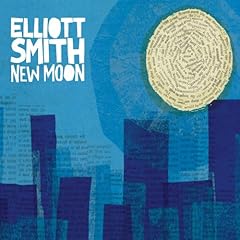THOUGHTS ON REALISM
realism, in regards to the fine arts style of painting, is defined as "the depiction of subjects as they appear in life, without embellishment or interpretation." its simply the recreation of an image by the hand as seen by the eye. like photography, but with a pencil or paintbrush instead of a lens and film.
back in the day, before cameras were commonplace, realist painters got most of the work. as art has historically been a luxury commodity for the wealthy, paintings allowed those who could afford it the opportunity to have their image imprinted in history. at the time, it was the most accessible option for visually capturing a moment for posterity.
i've had a little beef with realism since i came into my own as an artist. the casual art appreciators tend to flock towards realism. in my experience, the more realistic a painting, the more these people feel its beyond their own capacity, and thus, the more they are impressed with the artist's mastery of his tools. they're more impacted by the skill it required to produce the piece than by the piece itself or its competence in expressing something less tangible. the actual painting comes secondary, or not at all, as its the ability that is revered. its an admiration for the "how" and not the "what". a respect for the production that overshadows the produced.
the technical skill needed to reproduce something accurately has its value. i think its quite important for every artist to learn perspective and proportion and color mixing. its imperative for building foundations. learning how to see things as they are lets you see how you can change them as well, fitting them to your ideas. a professor told me something that i'll never forget:
"You have to learn all the rules so that you can learn how to break them."
while i think some are more inclined to excelling at it than others, i think that just about anyone can learn realism. that said, i think a truly gifted artist has something more than what can be taught. its an ability to express something through art. for art to have an effect on the viewer, a deep and profound meaning, it needs to go beyond mere photo-realistic representation. that's what makes fine art original. i look at it like this: if you sit a model in a chair and ask 10 realists to paint her, you'll get 10 paintings that all look virtually the same, more or less. if you were to have 10 non-realists paint her, you'll get 10 unique painting. one may convey the loneliness of the woman. one may convey the artists own issues with sexuality. one may convey the harmony and juxtaposition of color and form. while all 10 paintings are of the same subject matter, they would all express something more, something additional, something personal or emotional or symbolic. the subject for the realists is a woman sitting in a chair. for the non-realist, that's only part of it. maybe even nothing more than an inspiration.
i think a lot of folks get hung up on the "i could've done that" idea. Pollack or Mondrian come to mind. they see abstraction as something within their own grasp. the fact is, in many cases, there's a lot of stones that need to be stepped on before an artist can really express one's self in the manner he or she envisions. look at some of Picasso's early work and his drawings. he's got the realistic chops, and yet he veered so far off that path. he consciously chose to do so.
its a style with huge limitations. its easy and straight forward. its a style of face value, and personally, i need more from my artwork. both in what i admire and honor, and in what i create.
in the end, this is all just a statement of opinion. art is something different to everyone. any appreciation at all gets a thumbs up from me. i'm not bitter or angry and i don't mean to offend anyone or play myself off as some pretentious art snob. honestly, to each their own. i do actually respect realist paintings. i just think that there's a lot more that can be gained from art beyond the arrangement of a composition and the ability required to execute it. i just think some people close that window without ever looking through it.
back in the day, before cameras were commonplace, realist painters got most of the work. as art has historically been a luxury commodity for the wealthy, paintings allowed those who could afford it the opportunity to have their image imprinted in history. at the time, it was the most accessible option for visually capturing a moment for posterity.
i've had a little beef with realism since i came into my own as an artist. the casual art appreciators tend to flock towards realism. in my experience, the more realistic a painting, the more these people feel its beyond their own capacity, and thus, the more they are impressed with the artist's mastery of his tools. they're more impacted by the skill it required to produce the piece than by the piece itself or its competence in expressing something less tangible. the actual painting comes secondary, or not at all, as its the ability that is revered. its an admiration for the "how" and not the "what". a respect for the production that overshadows the produced.
the technical skill needed to reproduce something accurately has its value. i think its quite important for every artist to learn perspective and proportion and color mixing. its imperative for building foundations. learning how to see things as they are lets you see how you can change them as well, fitting them to your ideas. a professor told me something that i'll never forget:
"You have to learn all the rules so that you can learn how to break them."
while i think some are more inclined to excelling at it than others, i think that just about anyone can learn realism. that said, i think a truly gifted artist has something more than what can be taught. its an ability to express something through art. for art to have an effect on the viewer, a deep and profound meaning, it needs to go beyond mere photo-realistic representation. that's what makes fine art original. i look at it like this: if you sit a model in a chair and ask 10 realists to paint her, you'll get 10 paintings that all look virtually the same, more or less. if you were to have 10 non-realists paint her, you'll get 10 unique painting. one may convey the loneliness of the woman. one may convey the artists own issues with sexuality. one may convey the harmony and juxtaposition of color and form. while all 10 paintings are of the same subject matter, they would all express something more, something additional, something personal or emotional or symbolic. the subject for the realists is a woman sitting in a chair. for the non-realist, that's only part of it. maybe even nothing more than an inspiration.
i think a lot of folks get hung up on the "i could've done that" idea. Pollack or Mondrian come to mind. they see abstraction as something within their own grasp. the fact is, in many cases, there's a lot of stones that need to be stepped on before an artist can really express one's self in the manner he or she envisions. look at some of Picasso's early work and his drawings. he's got the realistic chops, and yet he veered so far off that path. he consciously chose to do so.
its a style with huge limitations. its easy and straight forward. its a style of face value, and personally, i need more from my artwork. both in what i admire and honor, and in what i create.
in the end, this is all just a statement of opinion. art is something different to everyone. any appreciation at all gets a thumbs up from me. i'm not bitter or angry and i don't mean to offend anyone or play myself off as some pretentious art snob. honestly, to each their own. i do actually respect realist paintings. i just think that there's a lot more that can be gained from art beyond the arrangement of a composition and the ability required to execute it. i just think some people close that window without ever looking through it.















.jpg)
1 comment:
We finally agree!
Check out Monica Aiello. You might like her.
I’m not an abstractionist. I’m not interested in the relationship of color or form or anything else. I’m interested only in expressing basic human emotions: tragedy, ecstasy, doom, and so on.
- Mark Rothko
Post a Comment